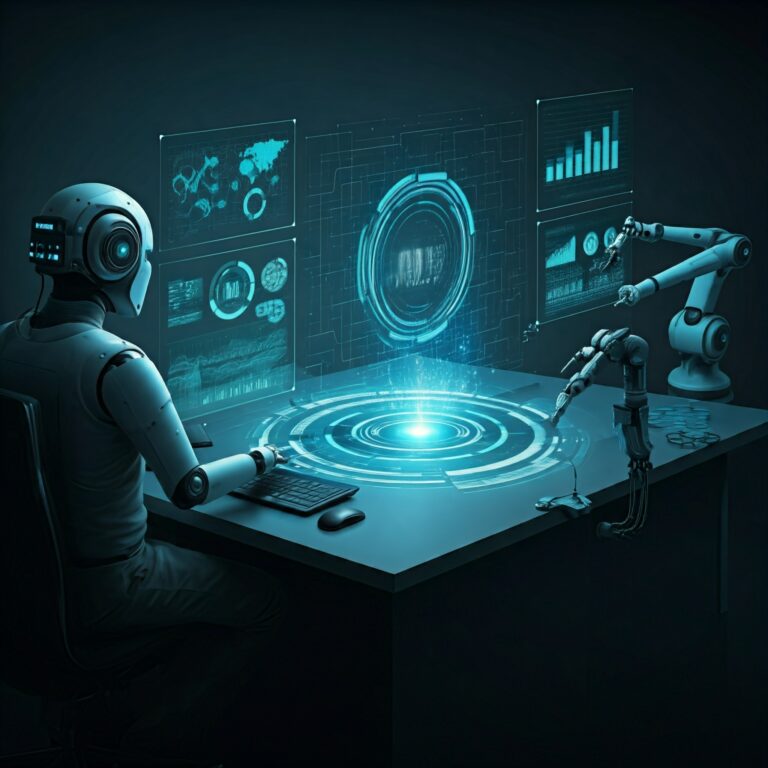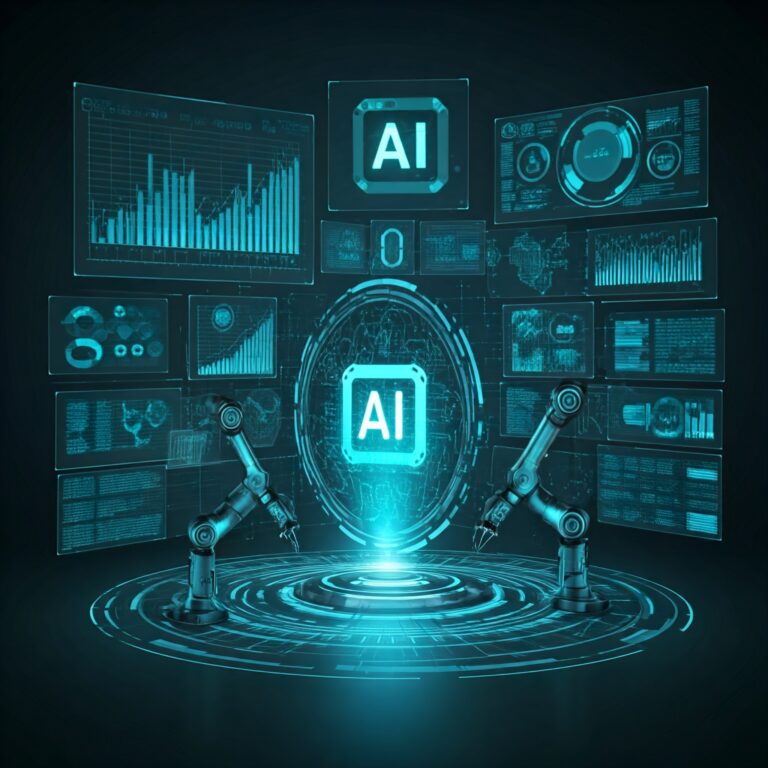Latest Trends in AI & Technology: Shaping the Future of Innovation
In today’s fast-paced digital landscape, artificial intelligence (AI) and technology are evolving at an unprecedented rate, reshaping industries, businesses, and daily life. As we move further into 2024, it’s essential to stay informed about the latest trends that are driving innovation and transforming the way we operate. Let’s dive into the key advancements in AI and technology that are shaping the future.
1. Generative AI: Creativity Meets Automation
Generative AI is making waves across industries, thanks to its ability to create content—whether it be text, images, or even music—that mimics human creativity. Leveraging deep learning models such as GPT (Generative Pretrained Transformer) or DALL·E, businesses are now able to automate creative processes like never before.
- Applications: Content generation, marketing, design, and even software development are benefiting from this technology. Industries such as media, entertainment, and advertising are leading the charge by using AI to produce high-quality, personalized content at scale.
- What to Watch: As generative AI tools become more sophisticated, expect to see them integrated into a variety of creative fields, from architecture to fashion design.
2. AI-Driven Healthcare
Healthcare is experiencing a technological revolution, with AI playing a central role in diagnostics, drug discovery, and patient care. Machine learning algorithms are now being used to analyze vast amounts of medical data, helping doctors diagnose diseases faster and more accurately.
- Applications: AI models are assisting in identifying early signs of diseases like cancer through medical imaging and are also being used in genomics to identify the best treatment options for patients based on their genetic makeup.
- What to Watch: The intersection of AI and biotechnology is one to watch, as it holds the potential to reduce the time and cost of developing life-saving drugs.
3. AI Ethics and Regulation
As AI continues to permeate every aspect of life, ethical considerations are becoming more pressing. Governments and institutions worldwide are grappling with the implications of AI, including data privacy, security, and the potential for bias in decision-making processes.
- Applications: Ethical AI usage is now a growing concern in fields like facial recognition, recruitment, and autonomous vehicles, where decisions made by AI can have life-altering consequences.
- What to Watch: Expect tighter regulations and standards for AI implementation to emerge, with a growing emphasis on transparency, fairness, and accountability.
4. Edge Computing and AI Integration
Edge computing is the practice of processing data closer to the location where it is generated, reducing latency and bandwidth usage. When combined with AI, this creates more efficient systems, particularly for applications that rely on real-time data processing, like autonomous vehicles, smart cities, and IoT devices.
- Applications: By integrating AI at the edge, industries can make real-time decisions based on localized data, improving response times for critical systems like traffic management or industrial automation.
- What to Watch: Edge AI is poised to become essential for the future of IoT and smart technologies, offering real-time intelligence without needing to send data back to centralized cloud servers.
5. AI in Cybersecurity
With cyber threats on the rise, AI is becoming a vital tool for detecting, preventing, and responding to attacks. AI-driven security systems can monitor network traffic for suspicious behavior, identify vulnerabilities, and even autonomously patch issues before they’re exploited.
- Applications: AI is being used in everything from phishing detection to behavioral analytics, allowing for more proactive defense mechanisms.
- What to Watch: As AI becomes more ingrained in cybersecurity, we will likely see a rise in AI-powered cyberattacks, leading to a technological arms race between attackers and defenders.
6. AI for Sustainable Development
Sustainability is becoming a key concern for businesses and governments alike, and AI is playing a crucial role in addressing these challenges. AI-driven systems are helping optimize energy consumption, reduce waste, and develop new sustainable materials and technologies.
- Applications: Smart grids, energy-efficient manufacturing, and AI-driven environmental monitoring are just a few examples of how AI is contributing to a greener future.
- What to Watch: The combination of AI and sustainability initiatives will drive the development of smart cities, clean energy, and climate modeling to mitigate environmental challenges.
7. Natural Language Processing (NLP) Evolution
Natural language processing (NLP), a subset of AI focused on understanding and generating human language, has seen remarkable advancements. From chatbots to virtual assistants, NLP is revolutionizing customer service, allowing for more intuitive interactions between humans and machines.
- Applications: Virtual assistants like Siri, Google Assistant, and Alexa are just the tip of the iceberg. AI is now capable of translating languages, summarizing text, and even assisting in legal documentation and analysis.
- What to Watch: NLP’s capabilities will only improve as AI becomes better at understanding context, tone, and intent, making human-computer interaction more seamless than ever.
8. Quantum Computing and AI
Though still in its early stages, the fusion of AI and quantum computing promises to revolutionize industries requiring immense computational power. Quantum computing can solve complex problems much faster than traditional computers, enabling AI to handle even more data and learn more efficiently.
- Applications: Quantum AI could revolutionize fields like cryptography, climate modeling, and material science by solving problems that are currently too complex for classical computers.
- What to Watch: As quantum computing becomes more accessible, expect breakthroughs in AI capabilities that will push the boundaries of what’s possible in data science and machine learning.
Conclusion
As AI and technology continue to evolve, businesses and industries must adapt to stay competitive. From Generative AI to AI-driven healthcare, edge computing, and quantum AI, the future promises unprecedented innovation. At APPNEURAL, we’re committed to staying at the forefront of these trends, offering cutting-edge solutions that help businesses thrive in this ever-changing digital landscape.




Hi, this is a comment.
To get started with moderating, editing, and deleting comments, please visit the Comments screen in the dashboard.
Commenter avatars come from Gravatar.